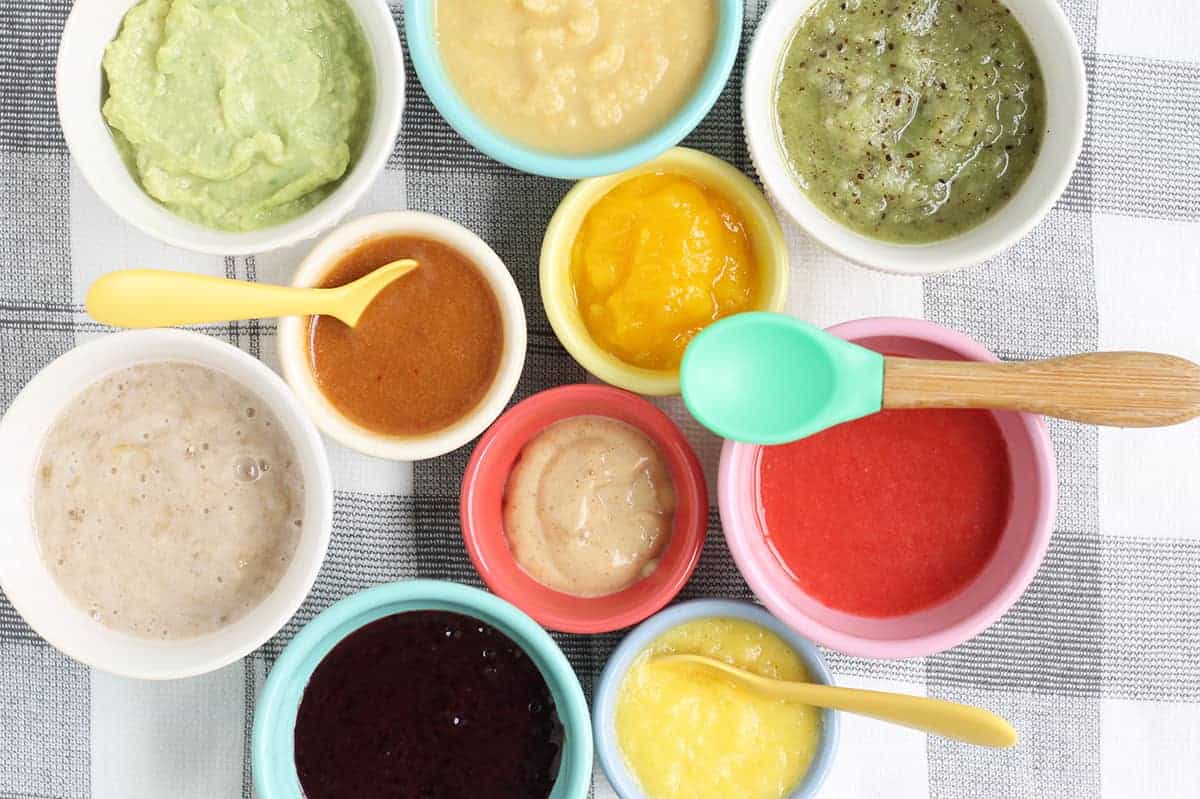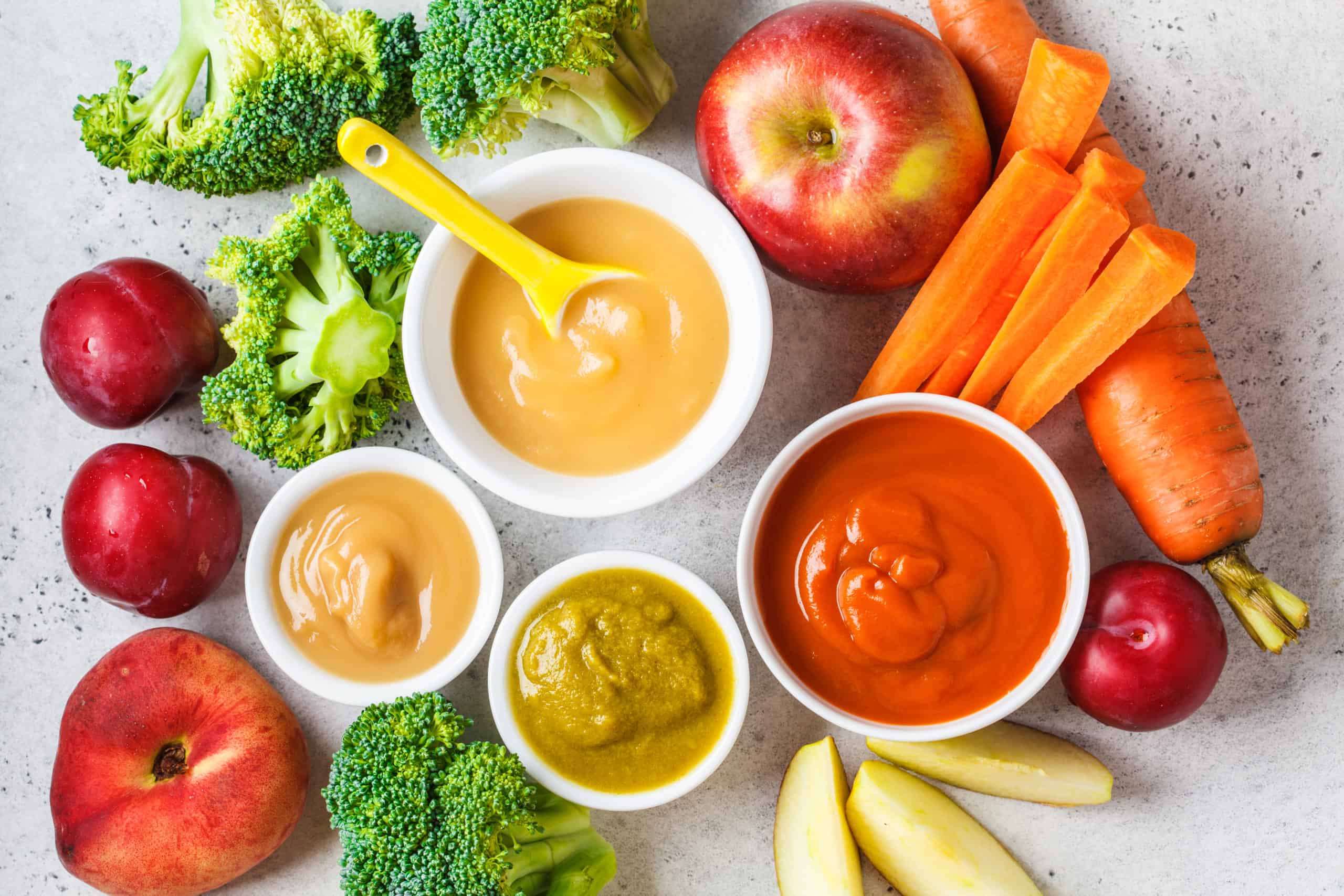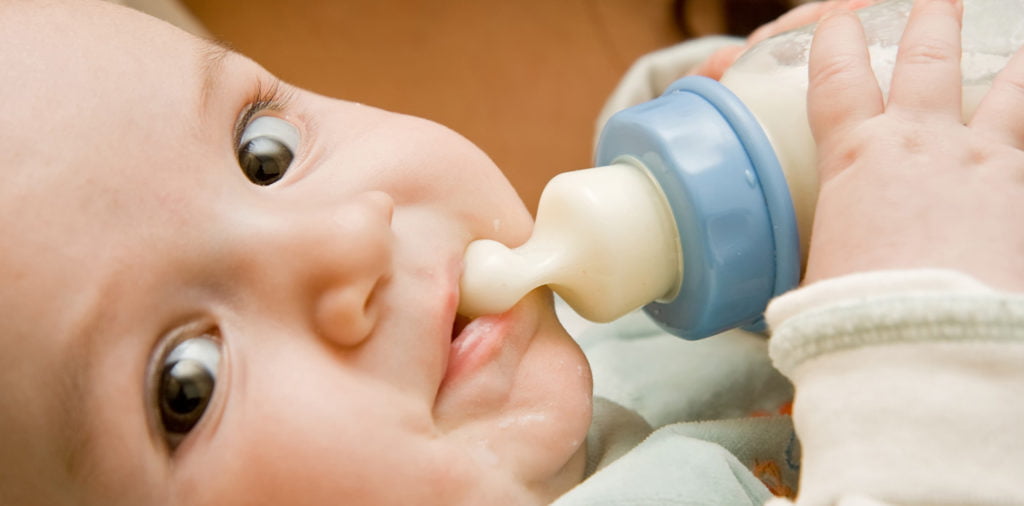As parents, we all want the best for our little ones, especially when it comes to their nutrition. While store-bought baby food can be convenient, there’s nothing quite like knowing exactly what ingredients are going into your baby’s meals.
That’s why more and more parents are opting to make their own homemade baby food, and with good reason! Not only is it cost-effective, but it also allows you to tailor meals to your baby’s taste preferences and dietary needs.
If you’re ready to give homemade baby food a try, you’re in luck! We’ve rounded up 10 of the best homemade baby food recipes that are not only delicious but also packed with essential nutrients for your little one. From sweet potato and apple puree to avocado and banana mash, these recipes are easy to make, and your baby is sure to love them.
So, grab your blender and get ready to whip up some tasty meals for your little one!
10 of the Best Homemade Baby Food Recipes:


Source: yummytoddlerfood.com
10 Best Homemade Baby Food Recipes
If you are looking for healthy and delicious homemade baby food recipes, you have come to the right place. Making your baby’s food at home is not only economical, but it also ensures that your baby is getting the freshest and healthiest ingredients available. Here are 10 of the best homemade baby food recipes that your little one is sure to love.
1. Avocado and Banana Mash
Avocado and banana mash is an excellent first food for babies. Avocado is packed with healthy fats, while bananas are a great source of potassium. Simply mash up an avocado and a ripe banana together, and you have a delicious and nutritious meal for your baby. You can also add breast milk or formula to thin out the mixture if needed.
2. Sweet Potato and Carrot Puree
Sweet potatoes and carrots are both rich in beta-carotene, which is essential for healthy vision and immune function. To make a sweet potato and carrot puree, steam or roast equal parts of sweet potatoes and carrots until they are tender. Then, puree them in a blender or food processor until smooth. You can also add a pinch of cinnamon for added flavor.
3. Apple and Pear Sauce
Apples and pears are both high in fiber and vitamin C, making them a great choice for baby food. To make apple and pear sauce, peel and core equal parts of apples and pears, and then steam or simmer them until they are soft. Then, puree them in a blender or food processor until smooth. You can also add a pinch of cinnamon for added flavor.
4. Butternut Squash and Apple Puree
Butternut squash is a great source of beta-carotene, while apples add natural sweetness. To make butternut squash and apple puree, peel and dice equal parts of butternut squash and apples, and then steam or roast them until they are tender. Then, puree them in a blender or food processor until smooth. You can also add a pinch of nutmeg for added flavor.
5. Blueberry and Banana Mash
Blueberries are packed with antioxidants, while bananas provide potassium and natural sweetness. To make blueberry and banana mash, mash up a ripe banana and a handful of blueberries together until smooth. You can also add breast milk or formula to thin out the mixture if needed.
6. Green Pea Puree
Green peas are a great source of protein and fiber, making them a healthy choice for baby food. To make green pea puree, steam or simmer fresh or frozen green peas until they are tender. Then, puree them in a blender or food processor until smooth. You can also add a pinch of mint for added flavor.
7. Lentil and Carrot Puree
Lentils are a great source of protein and iron, while carrots are rich in beta-carotene. To make lentil and carrot puree, cook equal parts of lentils and carrots until they are soft. Then, puree them in a blender or food processor until smooth. You can also add a pinch of cumin for added flavor.
8. Mango and Banana Mash
Mangoes are high in vitamin C and fiber, while bananas provide potassium and natural sweetness. To make mango and banana mash, mash up a ripe banana and a ripe mango together until smooth. You can also add breast milk or formula to thin out the mixture if needed.
9. Brown Rice and Sweet Potato Puree
Brown rice is a great source of complex carbohydrates, while sweet potatoes are rich in beta-carotene. To make brown rice and sweet potato puree, cook equal parts of brown rice and sweet potatoes until they are soft. Then, puree them in a blender or food processor until smooth. You can also add a pinch of cinnamon for added flavor.
10. Spinach and Apple Puree
Spinach is a great source of iron and other important nutrients, while apples add natural sweetness. To make spinach and apple puree, steam or simmer fresh spinach and diced apples until they are tender. Then, puree them in a blender or food processor until smooth. You can also add a pinch of ginger for added flavor.
In conclusion, making your baby’s food at home is not only economical, but it also ensures that your baby is getting the freshest and healthiest ingredients available. These 10 homemade baby food recipes are easy to make and packed with nutrition that your little one needs to grow and thrive. Try them out and see which ones your baby likes best!
Frequently Asked Questions
Below are some frequently asked questions regarding the best homemade baby food recipes.
What are some benefits of making homemade baby food?
Homemade baby food is a great option for parents who want to control what their baby is eating. By making your own baby food, you can ensure that your baby is getting fresh, healthy, and nutritious meals. You can also customize each recipe to your baby’s taste preferences and dietary needs. Additionally, making your own baby food can be more cost-effective than buying pre-packaged options.
However, it’s important to note that making homemade baby food does require more time and effort than buying pre-packaged options. You’ll need to plan ahead, purchase fresh ingredients, and prepare the food yourself.
What are some of the best homemade baby food recipes?
There are countless homemade baby food recipes to choose from, but here are 10 of the best:
1. Avocado puree
2. Sweet potato mash
3. Apple sauce
4. Carrot and ginger puree
5. Butternut squash and pear puree
6. Chicken and vegetable puree
7. Lentil and vegetable puree
8. Banana and blueberry puree
9. Quinoa and vegetable puree
10. Broccoli and cauliflower puree
These recipes are all easy to make and packed with nutrients that are important for your baby’s growth and development.
Can I freeze homemade baby food?
Yes, you can freeze homemade baby food for later use. Freezing homemade baby food can be a great way to save time and ensure that you always have healthy meals on hand for your baby. To freeze homemade baby food, simply spoon the puree into an ice cube tray and freeze until solid. Once frozen, transfer the cubes to a freezer-safe container or bag. When you’re ready to serve, simply thaw the cubes in the refrigerator or using a baby food warmer.
It’s important to note that you should only freeze homemade baby food that has not been previously frozen. Additionally, be sure to label and date the containers or bags so that you know how long the food has been frozen.
How long can I store homemade baby food in the refrigerator?
Homemade baby food can typically be stored in the refrigerator for up to 3 days. To store homemade baby food in the refrigerator, spoon the puree into an airtight container and refrigerate immediately. When you’re ready to serve, simply reheat the puree in a baby food warmer or on the stove.
It’s important to discard any leftover baby food that has been sitting at room temperature for more than 2 hours. Additionally, be sure to check the food for any signs of spoilage, such as mold or an off odor.
At what age can babies start eating homemade baby food?
Babies can typically start eating homemade baby food at around 6 months of age. At this age, babies are typically ready to start eating solid foods and can handle pureed fruits and vegetables. However, it’s important to talk to your pediatrician before introducing any new foods to your baby’s diet. Your pediatrician can help you determine when your baby is ready for solid foods and what types of foods to introduce first.
Additionally, it’s important to introduce new foods one at a time and watch for any signs of allergic reactions or digestive issues. If your baby experiences any adverse reactions, stop feeding the food and talk to your pediatrician.


Source: pickyeaterblog.com
10 HOMEMADE BABY FOOD RECIPES FOR $21.95!
As a professional writer, I can confidently say that making homemade baby food is not only cost-effective but also a great way to ensure your little one is getting the right nutrients. With that in mind, here are ten of the best homemade baby food recipes that are easy to make and packed with essential nutrients.
From sweet potato and apple puree to pear and cinnamon mash, these recipes are sure to delight your baby’s taste buds while providing them with the necessary vitamins and minerals they need to grow and thrive. Whether you opt for a savory blend of butternut squash and carrots or a sweet concoction of banana and avocado, these recipes are an excellent way to introduce your little one to a variety of flavors and textures.
So why not try making your own homemade baby food? Not only is it a fun and rewarding experience, but it’s also a great way to ensure your baby is getting the best possible start in life.



